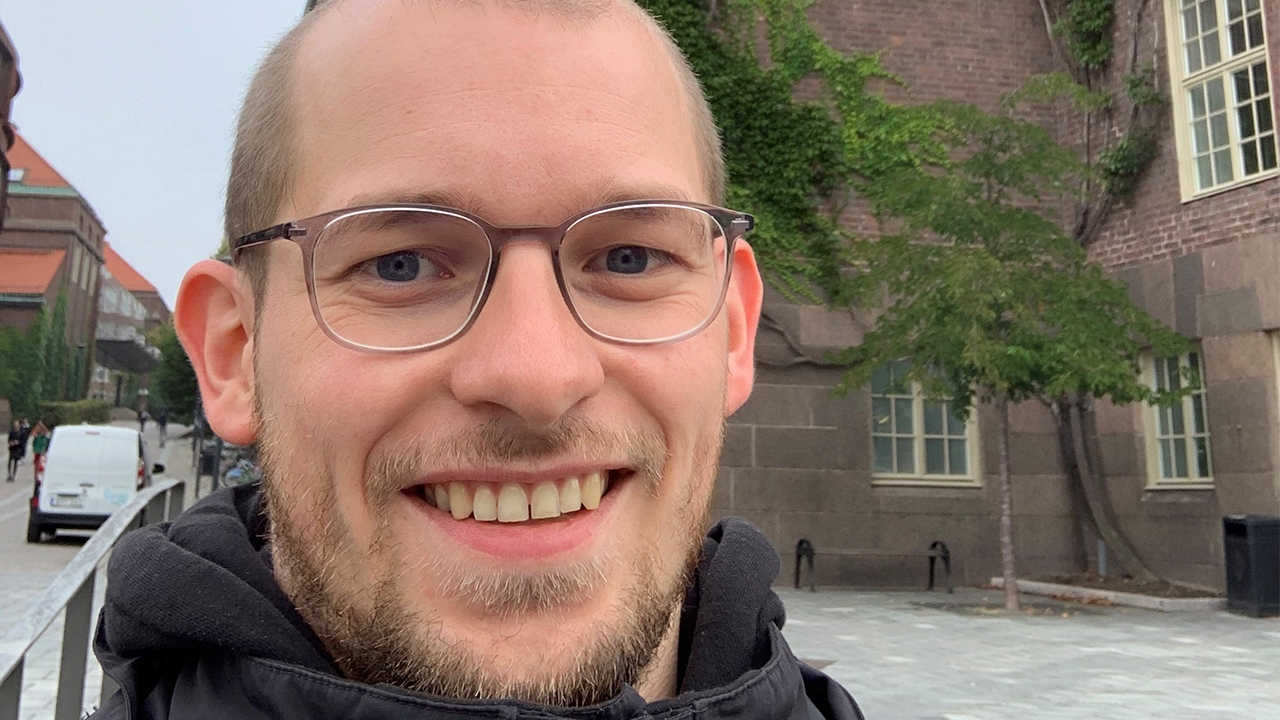"I have always thought of EECS as one of the most exciting computer science departments in Europe"

Stefan Neumann, new postdoc at the Division of theoretical computer science, has been awarded the “Award of Excellence” from the Austrian federal ministry of education, science and research for his dissertation. We have spoken to him about his dissertation and his new job at EECS.
Congratulations! How does it feel to have received this award?
“I am glad and I feel honoured to receive such a prestigious award from the federal government. I also view it as a recognition of the hard work I put into my PhD. Of course, nothing of this would have been possible without the help from my supervisor Professor Monika Henzinger and my great co-authors from whom I have learned a lot. But I also see it as a motivation to keep on putting a lot of effort into my research.”
Could you tell us a bit about your dissertation?
“In the last two decades, we have seen a lot of breakthroughs in the areas of artificial intelligence and machine learning. However, only few of the proposed algorithms come with provable guarantees and so our theoretical understanding of the underlying problems is still somewhat limited.
My dissertation tries to narrow this gap between theory and practice by providing practical algorithms with provable guarantees. For example, there have been a lot of heuristic algorithms which successfully find clusters of products, which are frequently bought together in online shops. In practice, many of these product clusters are tiny – e.g., a natural cluster consists of the seven Harry Potter books, but large online shops sell millions of products. In my thesis, I give the first algorithm, which can provably find these tiny clusters. Thus, it gives a theoretical justification for the success of practical methods.
Another part of the thesis considers the minimization of the traffic in data centres. We introduce a theoretical model for the patterns in real-life data centres. Then we provide asymptotically optimal algorithms, which exploit the proposed pattern model and achieve almost optimal network traffic.”
You started your post-doc at EECS this fall, what will you be working on here?
“At EECS, I am employed by Professor Aris Gionis and funded through his ERC grant. One of our goals will be to detect and reduce polarisation in social networks. I think this is an exciting research area, because it has a lot of societal impact and it also provides intriguing computer science problems.”
How come you choose KTH and Stockholm?
“Personally, I like big cities and I think Stockholm is quite lively. Professionally, I have always thought of EECS as one of the most exciting computer science departments in Europe. When I heard that Aris had open positions at KTH, I immediately knew this was the job I wanted to have. Of course, I was thrilled when I got the offer.”
Do you look forward to anything special this fall, winter?
“Since I only started working at KTH on 1 October, I am still in the settling down phase. So far, the people I met have been extremely nice and forthcoming and they have made my arrival very easy. Also, my new colleagues in Aris’s group are so bright and welcoming. I am looking forward to further getting to know the people at KTH and to the exciting research problems that lie ahead of me.”
